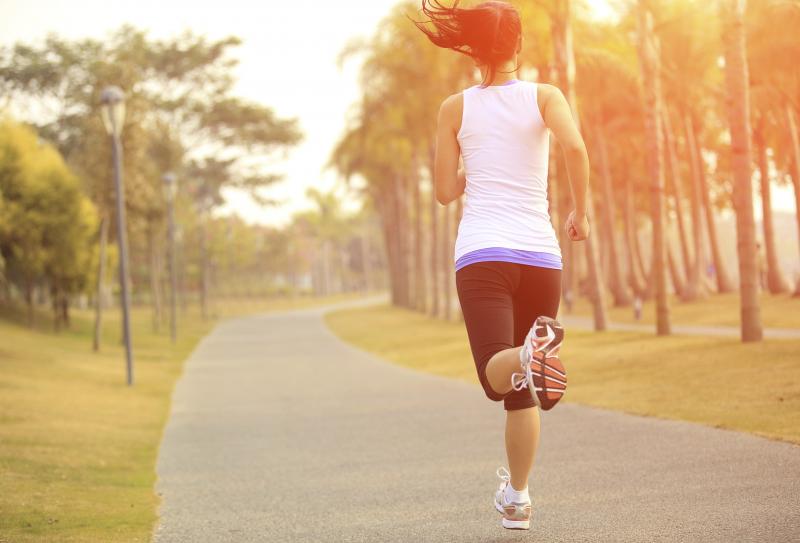Sunny days, warmer temperatures, and greenery invite us to get outside and play. Whether it's cycling, soccer, golf, or running, many outdoor activities become more appealing in spring and summer. It's the perfect time to get back in shape or expand your range of sports. With a return to more intense physical activity, you'll also experience muscle pain again. What natural solutions can you implement to reduce it?
The Effects of Training on Your Body
Exercise is demanding on the body. There is a real risk of dehydration and pushing your muscles beyond their capacity. That's why it's important to listen to your body's signals and finish your workout with a cool-down phase. Soreness immediately after exercise is usually attributed to lactic acid produced by the muscles. Most people also experience muscle soreness 24 to 48 hours after exercise. Scientists don't know the exact cause of this soreness and attribute it to a combination of factors . A post-workout routine will help reduce soreness and maintain your energy levels. Those who are starting a fitness routine after a long period of inactivity or who have health problems should consult a professional to get a program tailored to their needs.
1-Practice stretching regularly
Contrary to popular belief, the best time to stretch your muscles isn't immediately after a workout. What's recommended instead? First, warm up before your workout by activating your cardio. This step prepares your muscles and joints. After activating your cardiovascular system, do dynamic stretches like lunges with trunk rotation. These short stretches involve contracting one muscle and stretching its antagonist. Finally, between workouts, do static stretches to maintain or increase your flexibility. Static stretches are repetitive and should be held for at least 30 seconds.
2-Drink enough to recover naturally
When you exercise, you lose a lot of water. This is because exertion causes evaporation through sweat and through your mouth, as you breathe more quickly. If you sweat a lot during exercise, you'll lose a significant amount of water and electrolytes. However, to recover properly, your body absolutely needs to maintain good hydration. It's therefore important to drink enough water during exercise, but also before and after. Proper hydration allows your muscles to function at peak capacity and then eliminate toxins accumulated during exercise. After intense exercise, you can also drink an electrolyte drink to help your body replenish its electrolytes. However, avoid very sugary drinks, alcoholic drinks, and caffeine, which tend to lead to dehydration.
3-Adopt natural painkillers to recover well
It is impossible to completely eliminate muscle and joint pain at the source, these resulting from natural cellular processes. To relieve you, several homeopathic products directly target the pain resulting from sporting activity.
There Homeocan Traumacare range has been designed to help you say goodbye to exercise-related pain, quickly and effectively.
Depending on your preference, you can opt for the version in cream , tablets, gel, spray or drops . There is also an arnica cream that you can use to massage the sore area. All of these products will provide rapid relief and help you recover well, thanks in particular to two key natural ingredients: arnica montana, which has anti-inflammatory properties, and calendula, which has soothing and anti-edematous properties.
4-Eat properly to support your fitness
Diet plays a key role in proper recovery after exercise. It's what allows your body to replenish its energy. The key is to eat a good diet of carbohydrates and proteins. Carbohydrates will help you regain your energy, while proteins will provide the amino acids needed to repair your muscles. Conversely, not eating enough can increase your fatigue and inhibit the recovery process.
The optimal time to eat a snack is 45 minutes after exercise, but you should still get benefits if you eat it within 2 hours.
Your snack should consist of plant-based or animal protein, whole-grain starches, vegetables, or fruits. Your diet can be adjusted depending on your sport. For example, if you're weight training, you should aim for a 2:1 carbohydrate-to-protein ratio, while for aerobic exercise, aim for a 3:1 ratio. In other words, you're ingesting about two or three times more carbohydrates than protein.
5- Take advantage of the benefits of essential oils after sport
Did you know that some essential oils Do you have the power to quickly relieve exercise-related pain? Indeed, aromatherapy is a lifesaver after a good workout ! Lavender essential oil can help you rest, in addition to its anti-inflammatory action. If you want to continue enjoying your day to the fullest, try the Traumacare Essential Oil Spray , composed of menthol, eucalyptus, and clove. Spray it on and massage it into your muscles to forget about unpleasant sensations.


6-Sleep well to recover well
A good night's sleep is absolutely essential for recovering after exercise. While you sleep, your body regenerates muscle tissue, flushes out toxins, and replenishes its energy reserves. By following these tips, you increase your chances of a good natural recovery and a successful return to fitness. Responses to exercise vary from person to person, so be open to making certain modifications to suit your body. With a good routine, you'll be motivated all year long!
You might also like:
Gold, silver and copper to put your health on the podium Homeopathy to reduce muscle pain Colloidal Silver: its benefits and uses




